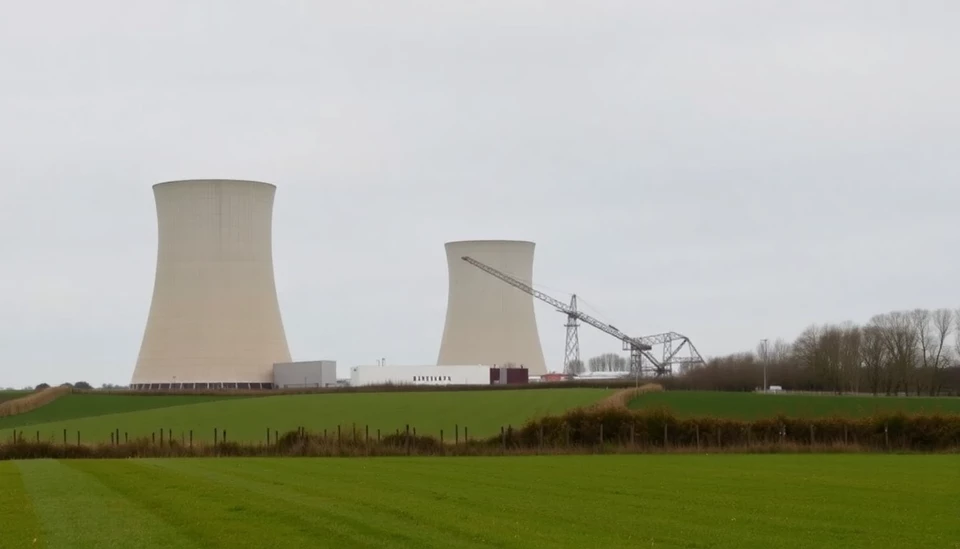
In a significant move within the energy sector, Electricité de France (EDF) has announced its plans to raise an additional $4 billion to fund the construction of the Hinkley Point C nuclear power plant in the United Kingdom. This latest financing push comes at a time when the project has faced mounting costs and delays, raising questions about the future of nuclear energy as a viable source of low-carbon power.
Hinkley Point C, located in Somerset, is a flagship project for EDF and is seen as vital for Britain’s energy security as the country seeks to transition away from fossil fuels. The plant, which is intended to produce 3.2 gigawatts of electricity, is expected to supply about 7% of the UK’s electricity needs once fully operational. However, the project has been plagued by escalating costs and timeline delays, which have led to scrutiny from both investors and the public.
This new round of funding is aimed at mitigating some of these financial pressures. EDF is reportedly in discussions with various stakeholders, including institutional investors, to secure the funds necessary to keep the construction on track. The company is also exploring options within the private markets, reflecting a growing trend among energy companies looking to tap into diverse funding sources amid a climate of uncertainty.
The original budget for Hinkley Point C was pegged at £18 billion ($22 billion), but the figure has ballooned to approximately £28 billion due to various factors, including increased labor costs and supply chain disruptions caused by the pandemic. EDF has emphasized that the project is crucial for the UK’s climate goals, as it aligns with the government’s strategy to achieve net-zero emissions by 2050.
In navigating through these financial challenges, EDF is also facing competition from other forms of energy generation, particularly renewables, which are becoming increasingly cost-effective and appealing to both investors and consumers. The shift towards wind and solar energy has raised questions about the long-term viability of nuclear power plants like Hinkley Point C, especially in light of budget overruns and technical challenges.
Despite the hurdles, EDF remains committed to the project and insists that Hinkley Point C represents a critical step for the future of clean energy in the UK. The company has outlined plans to enhance transparency and communication with stakeholders as they seek to move forward with financing and construction efforts.
As the UK grapples with energy supply challenges and the need for sustainable solutions, the success of Hinkley Point C could set a precedent for future nuclear projects in the region. The uncertainty surrounding the funding and management of such a colossal undertaking continues to attract attention from experts and policy-makers alike.
In conclusion, the road ahead for EDF and the Hinkley Point C project is fraught with challenges, but the company’s pursuit of $4 billion highlights its determination to deliver this marquee initiative. The focus will now be on how EDF navigates these financial waters and whether it can bring the project to fruition amidst rising costs and competitive energy alternatives.
#HinkleyPointC #EDF #NuclearEnergy #UKEnergy #CleanEnergy #InfrastructureFunding #EnergyTransition #SustainableFuture
Author: Victoria Adams




